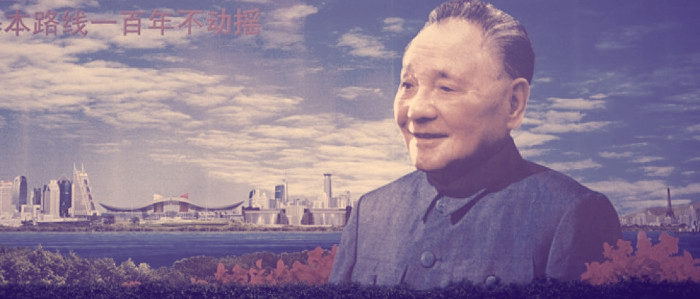
Deng Xiaoping is remembered as a paramount leader and reformist of the People’s Republic of China. He led the country to domestic stability and economic growth after the damaging excesses of the Culture Revolution. Though he never took office as the head of government or state, Xiaoping is known for developing China into one of the fastest growing economics of the world.
Born to Deng Wenming and Dan, Deng Xiaoping was the youngest of seven siblings. His father Deng Wenming was a middle-class landlord. Deng graduated from Chongqing Pre-paratorty School in 1919.
Xiaoping went to France in the 1920s, but focused more on his jobs rather than his studies. He met Zhou Enalai there, who changed his life. Xiaoping took an interest in politics, especially in Marxism.
In 1920, he joined the Chinese Communist Youth League in Europe. By 1924, he became a crucial member of the General Branch of Youth League in 1922, he moved to the Soviet Union to enroll at the Moscow Sun Yat-Sen University.
Fleeing from China after an unsuccessful attempt to resolve the spilt of Nationalist and Communist parties, Xiaoping settled in Wuhan and became an important leader and politician there. Soon, he shifted to Shanghai where he lived till 1929.
He was responsible for organizing protests which resulted in serious casualties and forced people to leave the party. This helped Xiaoping rise amongst the ranks.
He was absorbed under the leadership of Mao Zedong, who had a great impact on Xiaoping. Soon after, Xiaoping became the director of the propaganda department. Later, Xiaoping moved to Chongqing to negotiate between the Nationalist and Communist, but it was in vain.
While Chiang Kai- shek established his government in Nanjing, Xiaoping strengthened his base in the rural areas.
The same year, Xiaoping and Mao’s party defeated Chiang Kai-Shek’s government and established the People’s Republic of China. After a long struggle, Xiaoping was posted in the Southwest Bureau as the first secretary on October 1, 1949.
After completing his tenure, Xiaoping was relocated to Beijing, where he took up various positions in the government. In four years, Xiaoping became the secretary general of the CPC Central Committee and Vice chairman of the Central Military Commission.
In 1957, he was appointed as the secretary general of the Secretariat. But soon due to economic conditions under Mao’s government has dwindled. Mao’s leadership was under question and soon he was replaced by Xiaoping.
Along with Liu Shaoqi, Xiaoping promoted ted economical, foreign and domestic policies, which did not go well with Mao’s egalitarian policies as they stressed on self-interested.
After the death of Mao in 1976, Xiaoping became the ‘Paramount leader’ of the Communist Party.
Through his powerful post, Xiaoping brought about several political, cultural and economic reforms. All his reforms emphasized on material incentives and individual responsibility.
Besides, he urged the formation of skilled labor for economic growth and development. In addition he decentralized a few industries and small scale businesses to achieve better growth. And production. In fact, this change resulted in a significant increase in the production.
Regarding foreign exchange, Xiaoping brought about a huge difference in culture ties with other countries. He strengthened cultural ties with the Western countries and opened Chinese enterprise to foreign investment.
However, his dominance ended when he stepped down from his post in CCP’s Central Committee. He withdrew himself from the political scene in 1992.
Deng Xiaoping married thrice in his lifetime his first wife died while giving birth to their child, who also died. In 1933, he second wife, Jin Weiying, abandoned him. At last, he married Zhou Lin in 1939, with whom he had five children. On February 19, 1997, Xiaoping took his last breath. He died of Parkinson’s disease and lung infection. After his death, his organs were donated for medical research.
Xiaoping was the only Chinese politician and leader whose statues and memorials were constructed, in his honor, during his lifetime.
